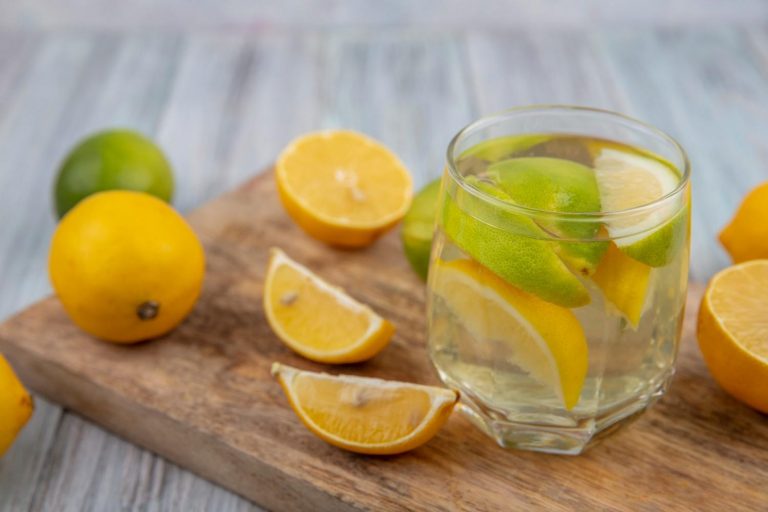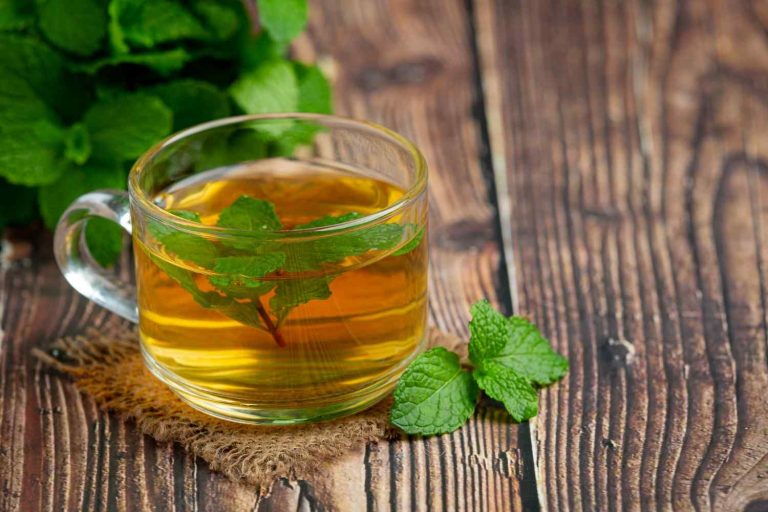7 Brain Mood Fruits To Boost Your Mental Health
Brain Mood Fruits are simple, delicious whole foods that help lift your mood, sharpen your focus, and calm anxiety. They aren’t a miracle cure, but they are an honest, powerful way to change the chemistry of your brain with what you put on your plate.
When I say brain mood fruits, I mean fruits that deliver nutrients proven to influence neurotransmitters, reduce inflammation, and protect brain cells. This matters to you because what you eat every day affects how you feel, how clearly you think, and how resilient you are under stress. Eat smart, and you’ll see real shifts in energy, sleep, and emotional balance.
Contents
- Why Fruit Matters For Mental Health
- How I Choose Brain Mood Fruits
- The Top 7 Brain Mood Fruits
- How To Build A Brain-Mood Fruit Routine
- Science, Not Hype: What Research Shows
- Eating Tips And Quick Recipes
- Who Should Be Cautious
- Practical Steps To Start Today
- What To Expect And When
- Final Thoughts
- Bottom Line
- FAQ
Why Fruit Matters For Mental Health
You already know fruit is good for the body. But some fruits carry specific compounds—antioxidants, flavonoids, vitamin C, potassium, fiber—that act on the brain. Researchers at leading institutions show that diets rich in fruit lower rates of depression and cognitive decline. Harvard Health Publishing describes how antioxidants reduce oxidative stress, which matters for mood and memory.
Fruit is portable, snackable, and often inexpensive. When you choose the right fruits, you get immediate benefits: a mood-lifting hit of natural sugars and long-term gains from nutrients that feed neurons. Think of brain mood fruits as the small, consistent choices that compound into calmer mornings and sharper afternoons.
How I Choose Brain Mood Fruits
I pick fruits based on three things: evidence, availability, and pleasure. If a fruit has strong research linking it to mood or cognition, it gets my attention. If I can buy it at the market or keep it in the freezer, I’ll use it. And if it tastes like a treat? That seals the deal.
You don’t need everything at once. Start with one fruit, notice how you feel after two weeks, then add another. Consistency wins. Combine these fruits with protein and healthy fats at meals to stabilize blood sugar, which keeps your mood steady.
The Top 7 Brain Mood Fruits
Below are seven fruits that stand out for their mental-health benefits. Each entry explains what they do, how to eat them, and a quick recipe or idea you can use today.
1. Blueberries, Small But Mighty
Blueberries pack anthocyanins, antioxidants that protect brain cells and support memory. Studies show regular blueberry intake improves cognitive performance in older adults and boosts mood in younger people when eaten regularly.
How to eat them: a handful in morning yogurt, blended into smoothies, or frozen straight into your oatmeal. Try a blueberry-lavender smoothie with Greek yogurt for a calming, protein-rich breakfast that stabilizes energy and soothes anxiety.
2. Bananas, Instant Energy, Steady Mood
Bananas are rich in vitamin B6 and potassium. Vitamin B6 helps synthesize serotonin, the neurotransmitter tied to happiness and calm. Potassium supports healthy blood pressure and circulation, which affects brain function.
How to eat them: slice over nut butter toast, blend into a cocoa smoothie, or freeze for a banana “nice cream.” If stress hits mid-afternoon, a banana with a tablespoon of almond butter is the fastest way to steady your mood and your blood sugar.
3. Avocados, Brain-Fueling Healthy Fats
Technically a fruit, avocado delivers monounsaturated fats vital for brain cell membranes. Healthy fats support focus, mood stability, and the absorption of fat-soluble vitamins. Research links diets rich in monounsaturated fats to better cognitive function.
How to eat them: smashed on toast with lemon and chili flakes, in salads, or puréed into smoothies. For a mood-lifting snack, make avocado and tuna boats—the protein and fats together are a mental-health power couple.
4. Oranges And Citrus, Vitamin C For Calm
Citrus fruits like oranges and grapefruits are bursting with vitamin C, a nutrient that reduces cortisol (the stress hormone) and supports neurotransmitter production. Studies show higher vitamin C levels are associated with lower perceived stress.
How to eat them: fresh-squeezed juice in the morning, citrus segments in salads, or a grapefruit half with a sprinkle of cinnamon. Keep a bowl of clementines on your counter—they peel easily and brighten any low-mood moment.
5. Cherries, Sleep And Serotonin Support
Tart cherries contain melatonin and antioxidants that help regulate sleep, which in turn stabilizes mood. Good sleep is the single most reliable treatment for mild depression and irritability. Eating cherries or drinking tart cherry juice can shorten the time it takes to fall asleep and improve sleep quality.
How to eat them: before bed, sip tart cherry juice or snack on fresh cherries. Add them to evening smoothies paired with a scoop of magnesium-rich cashew butter to enhance sleep and next-day mood.
6. Kiwifruit, Digestive Health, Emotional Balance
Kiwi is packed with vitamin C, serotonin precursors, and fiber that supports gut health. Emerging research links gut health to mental health—your microbiome influences neurotransmitter production and inflammation. A healthy gut often means a calmer, clearer mind.
How to eat them: slice into a breakfast bowl, chop into salsa for fish, or blend into a kiwi-lime cooler. Eating kiwi with fermented foods like yogurt can amplify benefits for your gut-brain axis.
7. Grapes, Polyphenols And Quick Pleasure
Grapes, especially dark varieties, contain polyphenols that improve blood flow to the brain and reduce inflammation. They’re also an easy, snackable fruit that satisfies the urge for something sweet without refined sugar.
How to eat them: freeze grapes for a crunchy treat, add to salads, or simmer into a grape compote to spoon over cottage cheese. For a quick mental lift, a handful of frozen grapes is soothing and hydrating.
How To Build A Brain-Mood Fruit Routine
Consistency matters more than perfection. Here’s a simple routine you can use for steady results.
- Start your day with a fruit-containing breakfast. Add blueberries, kiwi, or banana to yogurt or oatmeal.
- Keep a mixed fruit bowl visible on the counter for easy snacking.
- Rotate fruits weekly to get a range of nutrients—blueberries one week, cherries the next.
- Pair fruit with protein or healthy fat to smooth blood sugar and lengthen the mood benefit.
- Consider frozen fruit for convenience and year-round nutrition.
- If you have specific health conditions, check with your clinician about fruit intake and interactions with medications.
Science, Not Hype: What Research Shows
I’m practical about claims. Fruit won’t replace therapy or medication when those are needed, but studies from reputable institutions show clear links between fruit-rich diets and lower rates of depression and cognitive decline. Researchers at universities and hospitals have documented how flavonoids in berries and polyphenols in grapes modulate brain signaling, while vitamin C supports neurotransmitter balance.
If you want to dive deeper, read the National Institutes of Health and Harvard Health pages on diet and mental health for straightforward summaries of the evidence. These resources help you translate broad research into practical food choices.
Eating Tips And Quick Recipes
Make it easy. Here are simple, fast ideas to make brain mood fruits part of your day.
- Blueberry Chia Pudding: Mix chia seeds, almond milk, a dash of vanilla, and a handful of blueberries. Refrigerate overnight.
- Banana Almond Smoothie: Banana, almond butter, spinach, and a splash of oat milk. Blend until smooth.
- Citrus Salad: Segment orange and grapefruit, toss with arugula, avocado, and toasted walnuts.
- Cherry Bedtime Sip: 4 ounces tart cherry juice diluted with water, taken an hour before bed.
- Frozen Grape Snack: Freeze a bunch of grapes in a single layer and keep in a bag—elegant, crunchy, and refreshing.
Who Should Be Cautious
Most people can eat these fruits safely, but a few cautions are necessary. If you have diabetes, monitor portions and pair fruits with protein to avoid blood sugar spikes. If you are on MAOI antidepressants, check interactions—certain fruits can interact with those medications. And if you have kidney disease, watch potassium-rich fruits like bananas and avocados.
When in doubt, bring a list of the fruits you want to add to your next medical appointment. Your provider can advise on portions and timing.
Practical Steps To Start Today
You don’t need to overhaul your grocery list. Try this four-step starter plan.
- Pick two fruits from the list you like and buy one fresh, one frozen.
- Add fruit to at least two meals or snacks per day.
- Track mood and sleep for two weeks—note small changes.
- If something helps, keep it. If not, switch to another fruit and repeat.
Small, deliberate changes beat grand, unsustainable plans every time.
What To Expect And When
Expect subtle, steady improvements. Energy stabilizes within days when blood sugar is managed. Sleep and mood benefits from cherries or kiwi may show within one to two weeks. Cognitive benefits from berries tend to accumulate over months. The key is repeat exposure—your brain responds to consistent nutrients.
Final Thoughts
Eating well is an act of self-respect. Brain mood fruits give you tangible tools—flavorful, nourishing, and accessible—to care for your mental life. Start small. Be kind to yourself. Let these fruits be a daily habit that supports your best, clearest, calmest self.
Bottom Line
Bottom Line: Brain mood fruits are an effective, science-backed addition to your mental-health toolkit. They deliver nutrients that support neurotransmitters, reduce inflammation, and improve sleep and cognition. Start with one or two, keep it simple, and notice how small food choices change your day. You deserve a life that tastes good and feels steady.
Warmly—keep tasting, keep choosing, and keep caring for your beautiful brain.
FAQ
Which brain mood fruit should I try first?
Start with blueberries or bananas—they’re widely available, affordable, and backed by solid research on mood and cognition.
Can fruit replace antidepressants or therapy?
No. Fruit supports mental health but isn’t a substitute for medication or therapy when those are recommended. Use fruit as part of a broader plan that may include professional care.
How much fruit is too much?
Moderation matters. Two to three servings of fruit daily is a reasonable target for most people, combined with vegetables, protein, and healthy fats. Adjust for medical conditions like diabetes or kidney disease.
Are frozen fruits as beneficial as fresh?
Yes. Freezing preserves most nutrients and is a practical way to keep brain mood fruits on hand year-round.
References
National Institutes of Health provides research-based guidance on diet and mental health (http://www.nih.gov/health-information/diet-and-mental-health).
Harvard Health Publishing explains how antioxidants and diet influence brain function and mood (http://www.health.harvard.edu/mind-and-mood/diet-and-mental-health).
PubMed Central hosts studies on blueberries, flavonoids, and cognitive benefits (http://www.ncbi.nlm.nih.gov/pmc/articles/).
The American Psychological Association discusses links between diet, stress reduction, and mental wellness (http://www.apa.org/topics/diet-mental-health).
Get Your FREE Natural Health Guide!
Subscribe now and receive our exclusive ebook packed with natural health tips, practical wellness advice, and easy lifestyle changes, delivered straight to your inbox.




